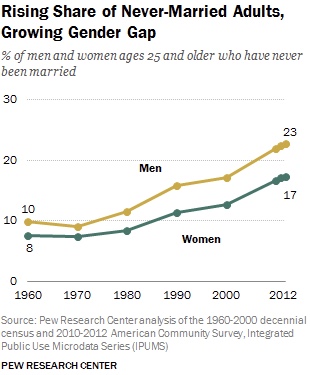I am considered an Old Millennial, which means that as a current thirty-something, I face a distinct set of issues that weren’t on my radar earlier in life. But there’s one issue facing Old Millennials I can’t relate to: being single.
I see an abundance of dating apps and think, “Oh wow, it must be so much easier to meet someone!” when in reality, I’m told, it could be the opposite. In New York City, scrolling through hundreds of potential partners could be just like scrolling through restaurants for delivery. You try one that’s alright, but can’t help but question, “Could I find better chicken pad thai?” Indeed, the market becomes oversaturated and you could swipe right by the love of your life.
I don’t know what it’s like, and I won’t pretend to know. But as Old Millennials get, uh, older, I do recognize my single clients struggling to plan for lives that may not include a significant other.
Not only is the need to find a mate in our DNA, but society also amplifies our animal instincts by placing an immense amount of pressure on us to pair off. If you grew up in a Jewish community, like I did, you’re no stranger to your mother’s mission in life to make sure you find a nice Jewish spouse to marry yesterday. It’s even more extreme in other cultures, too.
However, right now, there’s zero wrong with being a single adult. Unlike our parents’ and grandparents’ generations, we are more easily able to create lives for ourselves without relying on marriage to make it happen. According to Pew, the share of never-married adults aged 25 and older has more than doubled for both men and women since 1960. More than 23% of male and 17% of female adults will remain single.
Helping singles plan for the future can be challenging, because the last thing you want to do is offend a client by making the assumption they are “planning for one.” As with any high-touch situation, I aim for my clients to not feel judged. If remaining single isn’t by choice, I want them to feel my compassion, as well.
But the truth is, singles should be planning “for one,” because they need to plan, period. When people don’t take ownership of needing to reach financial independence on their own, they are more likely to put off their goals entirely. To illustrate, rather than saving a cash reserve, I see them spending on more expensive memberships and subscriptions. Instead of maxing out retirement plan contributions, they take luxurious trip with friends.
Although “living your best life” might include some splurges — especially when you aren’t considering another person’s needs — there is sometimes an undertone that the goals don’t matter. Even worse, that the goals can’t be established or met until there’s someone else to help you reach them.
I don’t remember what it feels like to be single, but I do know this: settling down isn’t a prerequisite for moving forward. Don’t let society, your family or your friends convince you that being single makes you any less capable of fulfilling your long term goals and dreams. There’s no better example of this than those who have chosen to become single parents.
Lastly, any future partnership will be that much better off when you’ve planned for yourself because knowing your own goals allows you to more easily adapt them to the joint goals couples will share. However, should that opportunity never arise, please remember there’s nothing wrong with wanting to achieve the great things in life for no one else but yourself.
Don’t forget to have some fun with us on Twitter!
You opened a coffee shop. What did you name it?
— Douglas A. Boneparth (@dougboneparth) April 7, 2019

